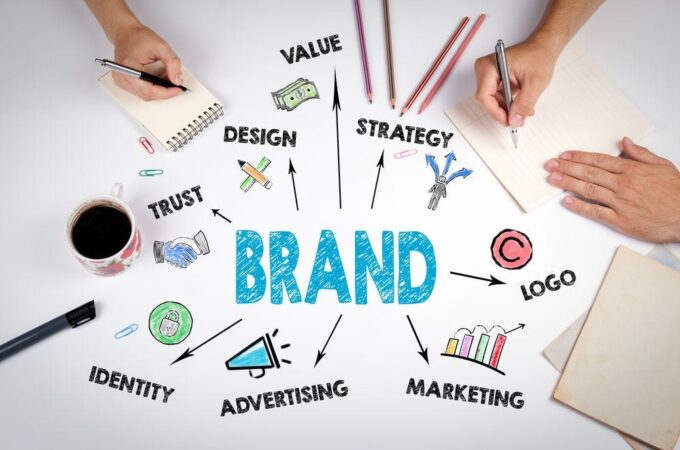
How to Choose a CRM System?
In the current business landscape, CRM is one of the most necessary tools to develop a successful market strategy and foster loyalty with your customers. It is no longer a question of whether or not you should use a CRM, but rather which one should you choose.
What is CRM System?
For those who are unaware, Customer Relationship Management, otherwise known as CRM, is a combination of business strategies, techniques, and tools that will help you build a long-lasting relationship with your customers.
Today, you can use software and programs that will help you streamline the process of CRM. They will help you store detailed information regarding your customers, their personal information, purchase history, behavior patterns, and more. These systems gather customer data from multiple channels, allowing you to gain insight into their preferences.
In effect, a CRM can help improve your product development and provide value-added services to match your customers’ expectations.
Considering its many benefits, the first step is to make sure that you choose a CRM that can facilitate you achieving your business targets.
1. Set Your Goals
The current CRM models are highly configurable. However, unless you know exactly what your business needs, you will not be able to make the right choice. You can do this by examining your current processes regarding customer relationship management.
You need to consider how your existing strategies impact both your organization and the audience. Consult your sales, marketing, and customer support team to document the methodologies that they use. This evaluation will help identify what is working and what is not – allowing you to implement a new CRM system that can include the most effective strategies for your business.
2. Consult a CRM Expert
With the marketing industry evolving rapidly, it can be challenging for you to know what to look for in a CRM. If you can find the resources, it is always best to opt for a custom CRM solution that provides the exact functionalities that match your business needs. They will be tailor-made for your requirements, meaning it will be easier to integrate with your systems that are already in place.
As you are building only the features you need, the operating expenses will also be relatively lower in the long run. Moreover, as your business expands, you can quickly add on more features as per your changing requirements.
3. Look for a Niche-Specific CRM
The CRM requirements for each industry might vary considerably. If possible, look for CRM solutions that are specific to your niche. At the very least, see if the vendor has worked with companies similar to your industry.
You can study this simply by checking their website, checking third-party reviews, or even reaching out to the team for case-studies on their previous clients.
Additionally, it would also be worth considering whether the CRM partners with other products. The best solutions these days have a wide vendor partner network that expands their functionalities to business consulting, local vendors, and more.
4. Consider Integration
One common mistake while choosing a good CRM system is that businesses often tend to overlook the importance of integration. Even if the software might work for your goals, you need to make sure that it can connect seamlessly to your existing processes.
Studying the new technologies and their day-to-day implementation can be a disruptive process by itself. It will be even worse if the tool doesn’t work with the software you are used to. Therefore, you will want system programmers or other customer support team members involved in the process to know which solutions will work the best with your current systems.

5. Streamline Communication
Apart from your internal systems, your CRM should also be able to integrate with a wide range of third-party software. This will give you the ability to collect up-to-date customer information through multiple channels.
To give an idea, you want a CRM system that works well with different communication devices such as web browsers, mobile phones, tablets are more. By collecting and analyzing data from every touchpoint with your CRM, you will be able to better understand the customer journey.
6. Look for Products That Offer Test Drives
Unless you are going for a custom CRM solution, it is likely that you are buying a product off the rack. Although it might appear easy and cost-effective, the issue is that not every service provider delivers on its promises.
Therefore, it is imperative that you look for CRM solutions that offer a demo and a personalized demonstration. And then, you can move on to the free trial.
During the live demo session, a salesperson will introduce you to the different functionalities of the software and how to use it. At this point, you can note down how you can customize it specifically for your business. When you get to the trial version, you can get tested on how each feature works and whether it makes for a good fit for your team.
We recommend that you test a few CRM vendors so that you can compare what they offer.
7. Getting Feedback is a Priority
When you test your CRM, make sure that it has a feedback option – and incorporate this step into your selection process as early as possible. Assign a testing team and check every function that you are likely to use. This means that you might need a member for each field such as marketing, customer outreach, and others.
This will also accelerate your team’s familiarity with the product. Depending on the product, you will also be able to develop custom features that will reflect every CRM requirement of your business.
Wrapping Up
There is no arguing about the significance of CRM in your business’s success. Regardless of the scale of your company, you should have a clear idea of what you are hoping to achieve with the CRM.
When choosing a CRM, you will also have to take scalability into account. As such, it will be best to go for a CRM that allows you to start small and add on more features as your business grows.




